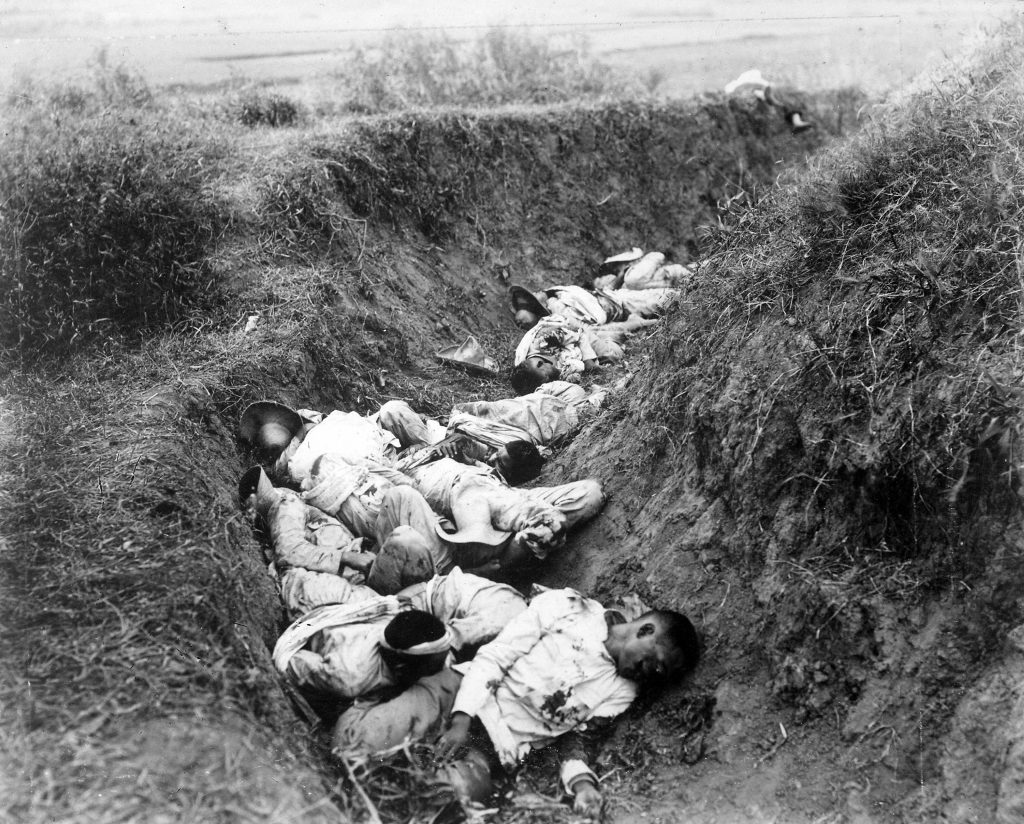
John Clifford Brown was an American soldier stationed in the Philippines from 1899 until his death in 1901. Brown enlisted once in 1898 although he never completed his tour. In 1899, he re-enlisted as a private in the corps of engineers where he was deployed to the Philippines as a cartographer. Because of his unique position as someone who was present during the war but not necessarily on the front lines, Brown was able to make constant, detailed observations about the Philippines and the country’s native inhabitants. In the 10 diary entries included in Hoganson’s American Empire at the Turn of the Twentieth Century, Brown describes life as a soldier in the Philippines and his opinions about native Filipinos as well as how they compare to African Americans he has observed back in the United States. Brown echoes opinions heavily reliant on stereotypes of not just Filipinos but all groups that are seen as “other,” specifically relating to the United States. He repeatedly portrays them in contradicting statements both as violent and animalistic, and as simple and peaceful, as childish, yet superior to the “American negro.” Brown explains how he will be “really sorry if the insurrection is indeed ended,” because he has “really enjoyed the hardships, the excitement, [and] the change” that has come with his time in the Philippines. While Brown describes his time in the Philippines like you would describe a vacation, Filipinos all around him were being tortured and murdered by the same U.S. soldiers sent to protect and help them. He clearly sees himself as standing high above the native Filipinos he is fighting alongside and makes no effort to conceal his true feelings, especially in the privacy of a diary.
Brown’s position as a wealthy white man who received a quality higher education at the Massachusetts Institute of Technology is made clear in his accounts of the war around him. His stance on the war in the Philippines is made evident in one particular entry dating January 7, 1900. Brown argues that Filipinos are incapable of self-governing because “[e]ven the educated Filipinos are childish. It seems to be their nature.” He finishes the day’s entry by stating how pleased he is that “the sentiment in the States seems so overwhelmingly in favor of keeping the islands.” John Clifford Brown’s diary entries in this excerpt titled I Have Really Enjoyed the Hardships, the Excitement, the Change reveal not only his personal biases and beliefs about the Philippines and its native inhabitants, but also the major ideas present in the larger American society at the time. Racism and xenophobia were always at the forefront of imperial efforts, regardless of whether people were advocating for or campaigning against imperialism in the United States. Unfortunately, many sources Hoganson includes echo Brown and advocate that because of these opinions they regard as absolute truth, America has a duty with their imperial efforts to “rescue” people they deem to be corrupt and less worthy than the ideal they perceive as the rich white man.
Sources
Brown, John Clifford. “Diary of a Soldier in the Philippines.” 1901. In American Empire at the Turn of the Twentieth Century, edited by Kristin L. Hoganson, 78-80. Boston: Bedford/St. Martin’s, 2017.
War Department. Office of the Chief Signal Officer. Insurgent dead just as they fell in the trench near Santa Ana, February 5th. February 5, 1899, National Archives Catalog. https://catalog.archives.gov/id/524389. Public Domain.